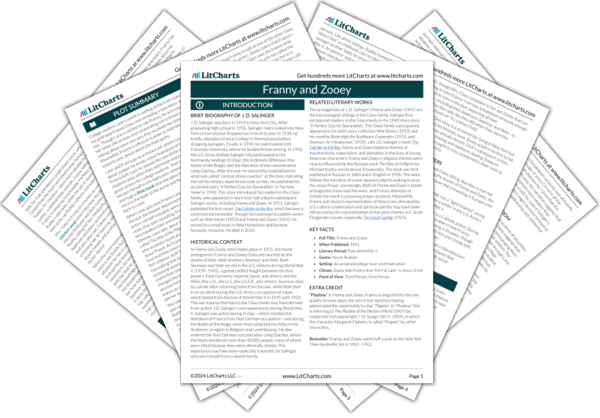Zooey’s suggestion that the real problem with conformists is their lack of ego suggests that, up to this point, Franny and Zooey have been equivocating on the word ego, using it to refer
both to the desire for social approval
and, contradictorily, to stubborn, selfish individualism. Zooey is arguing here that the former type of egotism (craving praise, approval, and social approbation) causes problems while the latter form (insisting on one’s individuality, including one’s authentic artistic expressions) is beneficial. Zooey’s sudden outburst of enthusiasm for the demanding, unsentimental Jesus of the Gospels, meanwhile, suggests that Zooey, like Franny, is a religious seeker who has looked to Jesus as a model—but he interprets Jesus differently than Franny does.
